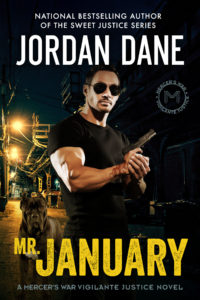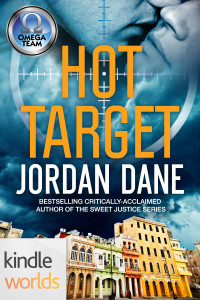Forgive the blatant Prince/Purple Rain reference. After I read the first lines of this anonymous submission, I had purple on my mind.
Below is an anonymous submission for critique, the first 400 words or so of a project. Read & enjoy. I’ll give my thoughts on the flip side. Feel free to provide your constructive criticism in your comments. Let’s help this author with our take.
A Pitying of Doves
SATURDAY – July 14th, 2012…8:29 am
The delicate bird bobbed around in circles, oblivious to the hungry yellow eyes hidden within the greenery −a common Laughing Dove− it was searching for its own subsistence near the marble steps of the towering Grand Mosque in Abu Dhabi. Latin name: Spilopelia senegalensis. On the fast track out of this messed up existence, Bertie thought, holding her breath and turning her D3x toward the ill-fated bird. Cha-click. Cha-click. Cha-click. Three-seconds. Three human heartbeats. It happened that fast. Death. Looking up over the top of the camera, she kept the shutter going as the lean, elegant feline blinked once in thanks before skittering off, prize in mouth, drops of blood trailing. Metaphor? Or prophesy? The pain in her gut said both as she swiveled the camera on its tripod back to the subject at hand. “Okay!” she shouted. Her assistant swung his arms about and stepped out of the frame as a burst of doves hit the air for her ravenous lens.
“You will get the perfect image I think,” said the Indian man breathlessly, scooping up the camera bag and preparing to follow her to another spot.
“It has to be perfect, Amir,” she said, still clicking, but thinking only of the killing that she’d been involved in three days ago. Murder. For the first time, she suddenly felt ill. “Khalas! That’s enough. I can’t do anymore.” She quickly abandoned her equipment for the parking lot and stumbled behind her silver Range Rover. The acrid smell of rubber and petrol made her eyes water as she held onto the bumper, pressing her black and white keffiyeh scarf across her mouth, trying to maintain her composure. Murder. The word ricocheted inside her skull. It thundered like an avalanche and threatened to bury her, just like they had buried him. “Necare,” she whispered, murder’s more attractive Latin equivalent. She usually found it soothing, translating words into the old language, perhaps because it took her back to her college years, back to a time of relative innocence. “Homicidium,” she went on, fist clenched against sternum, near panic as the tears came along with the realization that her virtue was lost forever. “What the hell have I done?”
FEEDBACK
Overview – I enjoyed the imagery of Bertie taking objective photos of a dove killed by a stalking cat. She merely observes and documents. The author eases the reader into why Bertie might view death differently. I also liked the reference “ravenous lens.” Very fitting. The last line intrigues me – “What have I done?” It makes me wonder what Bertie had to do with murder. The name Bertie seems like someone elderly and a very non-lethal person. Below are my suggestions for the author to consider:
1.) White Space & Flow – My first thoughts are to improve the use of white spacing on the page so the eye of the reader doesn’t get lost in what looks like weighty paragraphs they might skim. There are important imagery, plot details and dialogue embedded in these longer paragraphs that could be enhanced by merely showcasing them. Often, the reader’s eye looks for dialogue or (heaven forbid) they skim looking for dialogue if they see long paragraph’s ahead.
I’m a believer in steering the attention of the reader to important lines or showcasing a single line to emphasize something foreshadowing or important. I like shorter chapter lengths and using foreshadowing/cliffhanger techniques at the end of each chapter to keep the reader turning the page. I’m also suggesting the author use Bertie’s name sooner so the reader immediately knows whose head we’re in.
Here’s an example with only minor changes to tighten 1st paragraph:
Bertie spotted a delicate bird bobbing in circles, oblivious to the hungry yellow eyes hidden within the greenery. A cat searched for its own subsistence near the marble steps of the towering Grand Mosque in Abu Dhabi. The common Laughing Dove was on the fast track out of this messed up existence.
Bertie held her breath and turned her D3x toward the ill-fated bird. Cha-click. Cha-click. Cha-click. Three-seconds. Three human heartbeats. Death happened that fast.
She looked over the top of the camera and kept the shutter going as the lean, elegant feline blinked once in thanks before skittering off, prize in mouth, drops of blood trailing. Metaphor? Or prophesy?
The pain in Bertie’s gut said both as she swiveled the camera on its tripod back to the subject at hand.
“Okay!” she shouted.
Her assistant swung his arms about and stepped out of the frame as a burst of doves hit the air for her ravenous lens.
2.) Stick with the Emotion/Show Don’t Tell – In the last long/weighty paragraph, I understand Bertie is haunted by something bad that happened. I wanted to see more of her emotion, but the clinical word translation drew me out of her head and I didn’t understand why. If this was meant to give insight into Bertie and the way she deals with things, the author must still show her emotional struggle to get the reader more invested. Perhaps her mind takes over (with the word game) while her body reacts to a dark memory, but if this is the case, it wasn’t as clear as it could have been. The author also “tells” rather than “shows” Bertie’s turmoil.
Here’s an example with only minor changes to tighten last paragraph:
“It has to be perfect, Amir,” she said.
Her fingers trembled as she took the shots and her stomach roiled from the memory of what happened three days ago. Hot bile rose in her belly until she thought she would throw up. She couldn’t lose it in front of Amir.
“Khalas! That’s enough. I can’t do anymore.”
Bertie abandoned her equipment and ran for the parking lot before anyone saw her break down. She stumbled behind her silver Range Rover, out of breath. Her eyes watered from the acrid smell of rubber and petrol–and something more. She held onto the rear bumper and pressed her black and white keffiyeh scarf across her mouth to stop from getting sick.
Murder. The word ricocheted inside her skull. It thundered like an avalanche and threatened to bury her, just like they had buried him.
With her eyes stinging with tears, she shut them tight to block out the images that haunted her. For days she hadn’t slept. Exhaustion had worn her down until her mind tortured her with a word game she hadn’t played since she was in college. The old language game used to soothe her. Not today.
“Necare,” she whispered, murder’s more attractive Latin equivalent. “Homicidium.”
Tears ran down her cheeks and wouldn’t stop. Bertie wrapped her trembling arms around her waist, breathing hard until her head spun. She’d crossed a line three days ago and lost the last of her innocence. How could she look anyone in the eye?
“What the hell have I done?”
Final Thoughts – All the elements are here in the submission, but by focusing on Bertie’s emotional state and showcasing certain lines, plot elements, and dialogue, this submission can become a smoother read without much effort.
Discussion: What do you think, TKZers? Please comment.
Mr. January available in print now (210 pages). Ebook pre-order $2.99!
Zoey Meager risks her life to search for her best friend Kaity in a burning warehouse, only to cross paths in the inferno with Mr. January, a mysterious man with a large black dog, completely devoted to its shadowy master.





